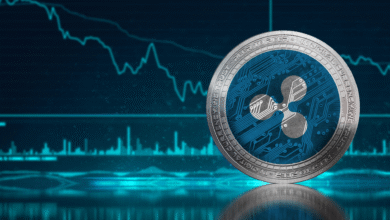Bitcoin Safe Haven: Insights from Crypto Experts

In the ever-evolving landscape of finance, the debate surrounding Bitcoin as a safe haven continues to gain momentum, especially amid global economic uncertainties. With insights from 57 cryptocurrency experts, the potential of Bitcoin investment is being scrutinized in the context of its ability to withstand volatility. As the digital currency is increasingly referred to as ‘digital gold’, many market analysts are keenly observing bitcoin price predictions in light of current geopolitical tensions. The findings suggest that Bitcoin could serve as a refuge for investors, particularly in times of turmoil, leading to a reevaluation of traditional safe-haven assets. Consequently, understanding the implications of Bitcoin’s role could transform investment strategies as trends within the crypto market evolve.
Exploring the notion of Bitcoin’s potential as a protective asset raises significant questions about its standing in the current economic climate. Increasingly recognized as a possible refuge for capital, Bitcoin is drawing parallels to conventional safe havens like gold. The discussions around its increasing acceptance among institutional investors underscore a shift in perceptions, especially during volatile market conditions. Insights from crypto insiders suggest a growing recognition of Bitcoin not just as a speculative asset but as a stable store of value worthy of consideration. As global market dynamics shift, understanding these alternative designations becomes crucial for navigating future investment landscapes.
Understanding Bitcoin’s Role as a Safe Haven
In the context of financial instability and global uncertainties, Bitcoin’s role as a potential safe haven has gained significant traction among investors and analysts alike. The consensus from several crypto experts suggests that Bitcoin has increasingly begun to mirror the behavior of traditional safe-haven assets such as gold. André Dragosch, among others, observes that Bitcoin has experienced a reduction in volatility, aligning more closely with U.S. stocks during times of crisis. This behavior implies that Bitcoin is not just a speculative asset but is being reevaluated as a stronghold for preserving value amid economic turbulence.
Moreover, historical data indicates that during geopolitical events, such as tensions in the Middle East, Bitcoin has demonstrated remarkable resilience, significantly outperforming traditional markets. Investors are beginning to view it not only as a hedge against inflation but also as a protective asset during market downturns. The rise of institutional investments further corroborates this trend, as organizations increasingly allocate portions of their portfolios to Bitcoin, drawing parallels between it and the characteristics of ‘digital gold’.
Bitcoin Volatility: A Double-Edged Sword
While Bitcoin exhibits potential as a safe haven, its inherent volatility remains a critical concern for many investors. The crypto market is notorious for sharp price swings, leading to substantial gains and losses. As Michael Geike points out, in the event of a market crash, Bitcoin’s initial response might be extremely negative—plummeting up to 80%. This volatility can deter risk-averse investors from relying solely on Bitcoin as a secure asset during turbulent times.
However, this very volatility also creates opportunities for savvy traders and investors. Historical patterns demonstrate that Bitcoin often rebounds more quickly than traditional stocks after experiencing significant dips. Such resilience can attract not only individual investors but also institutions looking for growth amidst market instability. Thus, understanding Bitcoin’s volatility becomes essential in analyzing its viability as a long-term safe haven investment.
The Future of Bitcoin: Predictions and Trends
As we look towards the future, Bitcoin’s trajectory continues to intrigue both enthusiasts and skeptics within the crypto landscape. With predictions suggesting an optimistic outlook for Bitcoin’s price by January 2026, there is a growing belief that increasing acceptance and regulatory clarity will bolster its reputation as a safe haven asset. Many analysts argue that Bitcoin’s function as a decentralized form of currency positions it uniquely against traditional fiat currencies that are susceptible to inflationary pressures.
Furthermore, evolving market dynamics indicate that Bitcoin’s acceptance as a mainstream investment is likely to expand, especially among institutional investors. This shift could pave the way for Bitcoin to realize its potential as a reliable store of value akin to gold, even in uncertain economic climates. Ultimately, the interplay of market sentiment, regulatory frameworks, and technological advancements will significantly influence Bitcoin’s role in the investment landscape moving forward.
Comparing Bitcoin and Gold: A New Era of Safe Haven Assets
The comparison between Bitcoin and gold as safe-haven assets has become increasingly relevant in today’s economic debates. Bitcoin is often referred to as ‘digital gold’ due to its limited supply and inflation-resistant characteristics. Martin Kreitmair emphasizes this parallel, noting that Bitcoin has exhibited resilience against geopolitical uncertainties similar to that of gold. As investors seek alternatives to traditional investments, the question arises as to whether Bitcoin can ultimately rival gold’s long-standing status as a secure store of value.
Moreover, Bitcoin’s advantages over gold include its portability, divisibility, and the ability to be transacted across borders without intermediaries. This digital aspect resonates with the younger generations who value technology and innovation over traditional assets. As Bitcoin gains mainstream acceptance, it may redefine what it means to invest in safe havens, appealing to a more digitally-savvy investor class.
Market Trends Impacting Bitcoin’s Safe Haven Appeal
Market trends play a crucial role in shaping the perception of Bitcoin as a safe haven. In recent times, increased volatility in traditional markets, triggered by inflation fears and geopolitical tensions, has directed investor focus towards alternative assets. The crypto market trends indicate that more individuals are diversifying their portfolios with Bitcoin, viewing it as a hedge against traditional financial risks. This shift in investment behavior underscores a growing recognition of Bitcoin’s potential value preservation during economic downturns.
The evaluation of Bitcoin’s market performance during crises reveals that it has often outperformed traditional financial instruments. This performance is observed particularly during periods of market turbulence when investors seek refuge from falling stock prices. As such, the trends suggest that Bitcoin is not merely viewed as a speculative asset but is increasingly recognized for its capacity to provide stability in volatile times.
Institutional Investors Embrace Bitcoin as a Safe Haven
The growing trend of institutional investment in Bitcoin underscores its emerging status as a safe haven asset. Large financial institutions and hedge funds have begun to allocate significant portions of their portfolios to Bitcoin, recognizing its potential as a hedge against inflation and market risk. This influx of capital from institutions not only lends credibility to Bitcoin but also reinforces its reputation as a viable alternative to traditional assets such as gold.
The influence of institutional investors on the Bitcoin market cannot be overstated. Their entrance into the crypto space often brings a level of stability and legitimacy that can lead to increased mainstream adoption. As these institutions seek to protect their assets from volatility in traditional markets, Bitcoin becomes a compelling option, further solidifying its identity as a safe haven for the savvy investor.
Navigating Bitcoin’s Market Cycles: A Strategy for Investors
To effectively navigate the crypto landscape, investors must develop strategies that account for Bitcoin’s unique market cycles. Understanding the patterns of Bitcoin’s volatility and price fluctuations is key to maximizing returns while minimizing risks. As the market matures, the implementation of strategic investment approaches—such as dollar-cost averaging or long-term holding—can prove beneficial as Bitcoin evolves into a more stable asset.
Analysts advise investors to remain informed about market trends and economic indicators that might impact Bitcoin’s price. By keeping track of developments within both the cryptocurrency space and traditional financial markets, investors can position themselves advantageously during market shifts. This proactive approach allows investors to maintain a balanced perspective of Bitcoin’s potential as a safe haven even amidst uncertainty.
The Role of Regulatory Frameworks in Bitcoin’s Stability
Regulatory frameworks play a vital role in shaping the future of Bitcoin as a safe haven asset. As governments and financial authorities begin to establish clearer guidelines for cryptocurrencies, the potential for increased trust and adoption grows. Enhanced regulatory clarity could lead to greater institutional investment and a more stable market environment for Bitcoin, diminishing some of its perceived volatility.
Furthermore, as regulations surrounding Bitcoin evolve, they may contribute to a more comprehensive understanding of its role within the global economy. This understanding is crucial for both individual and institutional investors who seek to leverage Bitcoin’s unique characteristics as a safe haven asset. A well-regulated environment can enhance investor confidence and promote sustained growth within the crypto market.
Bitcoin Price Predictions: Insights from Industry Experts
As investors look to the future, Bitcoin price predictions remain a hot topic among industry experts and analysts. The current market indicators suggest a bullish sentiment, with many anticipating that Bitcoin could reach new all-time highs in the coming years. Predictions emphasizing the potential for Bitcoin’s price to soar are often linked to increasing institutional adoption and a broader acceptance of cryptocurrencies by mainstream finance.
Furthermore, Bitcoin’s price predictions are heavily influenced by macroeconomic factors, including inflation trends, interest rates, and the overall health of the global economy. As Bitcoin becomes more ingrained in the financial landscape, its price is likely to reflect its growing status as a safe haven asset. Experts caution, however, that while optimism prevails, potential investors should remain vigilant of market volatility and prepare for fluctuations along the way.
Frequently Asked Questions
Is Bitcoin considered a safe haven investment during economic uncertainty?
Many experts believe that Bitcoin can act as a safe haven investment, particularly during times of economic uncertainty or geopolitical tension. Analysts like André Dragosch highlight that Bitcoin’s volatility is decreasing and aligning more with traditional assets, suggesting it can serve as a impactful hedge against market turbulence.
How does Bitcoin’s volatility affect its status as a safe haven?
While Bitcoin’s volatility remains a concern, recent observations indicate that it can recover more rapidly than traditional markets after downturns. This behavior, described as a hallmark of a safe haven, suggests that even though Bitcoin faces initial price drops during crises, it often regains value quicker than stocks and other assets.
What makes Bitcoin similar to digital gold as a safe haven asset?
Bitcoin is increasingly being compared to digital gold due to its characteristics as a non-inflatable and censorship-resistant asset. As institutional investors adopt Bitcoin in their portfolios, it is gaining recognition for its potential to act as a safe haven asset like gold, especially during periods of inflation and monetary policy changes.
Can Bitcoin reliably protect against inflation as a safe haven?
Many view Bitcoin as a potential protection against inflation. Given its limited supply and decentralized nature, Bitcoin is believed to maintain its value better than fiat currencies, especially when central banks enact expansive monetary policies that could devalue traditional assets.
How do crypto market trends influence Bitcoin’s role as a safe haven?
Crypto market trends significantly impact Bitcoin’s standing as a safe haven. As market acceptance grows and regulatory clarity improves, Bitcoin’s resilience during market turbulence strengthens its reputation as a reliable investment. Experts suggest that increased adoption may solidify Bitcoin’s role as a safe haven in uncertain economic climates.
What is the potential future of Bitcoin as a safe haven asset?
The future of Bitcoin as a safe haven asset appears promising. With increased market breadth, acceptance, and favorable regulations, experts believe that Bitcoin could evolve into a global store of value, akin to gold, providing a buffer against economic uncertainty.
How do expert predictions for Bitcoin prices impact its safe haven perception?
Experts’ predictions for Bitcoin prices, such as anticipated growth over the next few years, contribute to its perception as a safe haven. A positive outlook can attract investors seeking stability during economic fluctuations, further reinforcing Bitcoin’s standing in the crypto market as a safe haven asset.
| Key Points |
|---|
| In times of economic unrest, Bitcoin is viewed increasingly as a potential safe haven asset by many experts. |
| Experts agree that Bitcoin has shown resilience during geopolitical tensions, such as conflicts involving Israel and Iran. |
| Bitcoin has historically tended to recover faster from market downturns compared to traditional stock markets. |
| Despite its potential, Bitcoin is not yet a comprehensive safe haven due to its volatility and correlation with stocks. |
| Experts suggest that with growing acceptance and regulatory clarity, Bitcoin could become a significant global store of value, akin to gold. |
Summary
Bitcoin safe haven is a contentious topic among crypto enthusiasts and investors alike. Though many experts acknowledge Bitcoin’s increasing role as a safe haven during periods of economic and geopolitical instability, its ultimate status as such remains ambiguous. The consensus is that while Bitcoin demonstrates resilience and faster recovery than traditional markets, its current volatility and correlation with stocks keep it from being fully recognized as a safe haven asset. As the market matures and regulatory clarity improves, Bitcoin could assume a more prominent role akin to that of gold as a global store of value.



